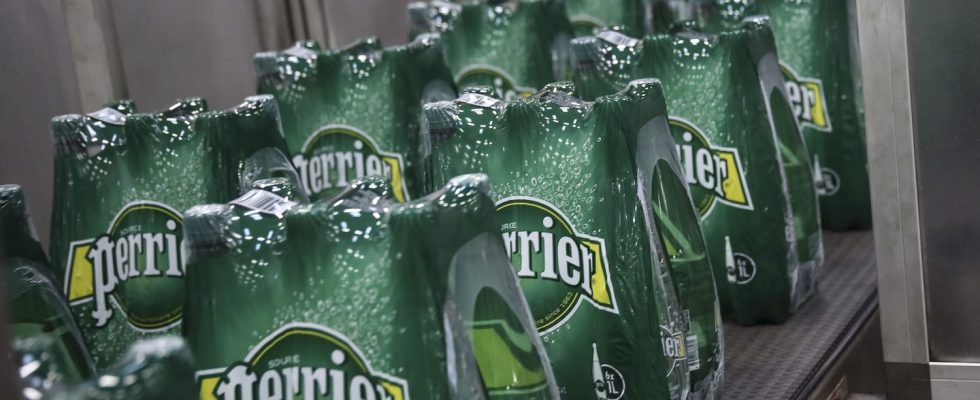An investigation by Le Monde and Radio France published this Tuesday, January 30 reveals the existence of illegal treatments on so-called “mineral” or “spring” water sold in bottles in France.
At the heart of the revelations of the investigation carried out by The world And Radio France and published on Tuesday January 30, is Nestlé Waters, the world number one in mineral water. This company is the owner of the Vittel, Contrex, Hépar, Perrier and St-Yorre brands. Commercially, these waters are sold as “spring waters” or “natural mineral waters”. According to current regulations, it is prohibited to treat this water which is supposed to come from protected areas and which therefore does not require undergoing a disinfection process. This operation is supposed to be reserved for tap water.
As the investigation reveals, the Nestlé group’s bottled waters have undergone purification treatment with activated carbon and UV filtration. According to information from the investigation, Nestlé Waters would have decided to apply these illegal treatments for mineral water on this type of water due to “sporadic contaminations of bacterial or chemical origin”, as indicated by Le Monde. The media specifies that according to a confidential note from the administration that it was able to consult, the contamination was “from fecal contamination”.
Another revelation from the investigation is that these fraudulent actions were knowingly hidden from consumers by the company, but the latter nevertheless informed the government. The story began at the end of 2020, after a report from the Sources Alma group (Cristaline, Vichy Célestins) which led the Directorate General for Competition, Consumer Affairs and Fraud Repression (DGCCRF) to open an investigation. The two media discovered that Nestlé Waters would have informed the government of these illicit practices in 2021.
Indeed, a meeting would have been held in Bercy at the end of August 2021 between Nestlé and the ministers of the economy Bruno Le Maire and of Industry Agnès Pannier-Runacher. The company would have revealed everything, asked to maintain certain treatments and to change the regulations. What the government accepted after Nestlé explained that these elements could lead to the end of the operation of certain sites and therefore endanger the employment of thousands of employees.
These treatments do not appear to be dangerous in terms of public health; on the contrary, they are deployed to rid the water of certain harmful compounds. But these treatments change the microbiotic characteristics of the water: it therefore no longer has anything “pure” or “natural”: this is however what most bottled water brands sell to their customers at a price. price 100 times higher than tap water.
According to Le Monde, France did not communicate these decisions to the European Commission or the member states even though it was supposed to do so according to a European directive.
An administrative investigation which reveals the extent of the fraud
Subsequently, at the request of the government, an administrative investigation was opened. The Ministers of the Economy, Bruno Le Maire, of Health Olivier Véran (at the time) and the Minister of Industry, Agnès Pannier-Runacher, entrusted the investigation to the General Inspectorate of Social Affairs (IGAS ). In total, this organization reveals in its report published discreetly in July 2022 that 30% of French water brands do not meet standards in terms of treatment. During a tour of Nestlé factories, it was also discovered that the company was deliberately hiding its illegal processing systems.
In February 2023, during an interministerial meeting with the Ministries of Economy and Health where Nestlé and its water production sites in France were discussed, relaxations of the regulations were decided. These relaxations aim to authorize certain water microfiltration practices which were not authorized until now and thus to prevent the closure of several sites.
Before the publication of this investigation this Tuesday, Nestlé Waters defended itself this Monday, January 29 to Echoes where she claims that these decisions were made in the name of “food security”. The company has in fact declared that the treatments “have always aimed to guarantee food safety” and adds that they “have led the company to lose sight of the issue of regulatory compliance”. On July 7, 2023, the Cusset prosecutor in Auvergne-Rhône-Alpes opened a preliminary investigation where the facts are listed in a report of more than 120 pages. Questioned during the investigation by Le Monde and Radio France, he indicated that a “judicial investigation could be opened for several offenses relating to acts of deception”.
